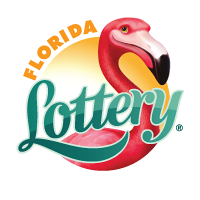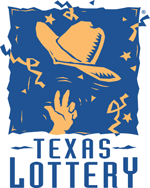Related Research Articles
Lotto South was a lottery game in Georgia, Kentucky, and Virginia. It resulted from the September 2001 merger of three smaller jackpot games, one from each of the three lotteries. This was done in an attempt to create larger jackpots.

Mega Millions is an American multijurisdictional lottery game. The first drawing took place on September 6, 1996, with six participating states, Georgia, Illinois, Maryland, Michigan, Massachusetts, and Virginia. After growth of the game in 1997, a Tuesday Drawing was added in February 1998. As of June 30, 2023, it is offered in 45 states, the District of Columbia, and the U.S. Virgin Islands. The first Mega Millions drawing was in 2002. What is now Mega Millions initially was offered in six states, the logo for all versions of the game following the retirement of The Big Game name featured a gold-colored ball with six stars to represent the game's initial membership, although some lotteries insert their respective logos in the ball.
Powerball is an American lottery game offered by 45 states, the District of Columbia, Puerto Rico and the U.S. Virgin Islands, and overseen by the Multi-State Lottery Association (MUSL), which also manages other large jackpot games such as the Mega Millions. Drawings are held three times weekly on Mondays, Wednesdays, and Saturdays at 10:59 p.m. Eastern Time, at the Florida Lottery's headquarters in Tallahassee.

The Georgia Lottery Corporation, known as the Georgia Lottery, is overseen by the government of Georgia, United States. Headquartered in Atlanta, the lottery takes in over US$1 billion yearly. By law, half of the money goes to prizes, one-third to education, and the remainder to operating and marketing the lottery. The education money funds the HOPE Scholarship, and has become a successful model for other lotteries, including the South Carolina Education Lottery.

The Florida Lottery is the government-operated lottery of the U.S. state of Florida. As of 2022, the lottery offers eleven terminal-generated games: Cash4Life, Mega Millions, Powerball, Florida Lotto, Pick 2, Pick 3, Pick 4, Pick 5, Fantasy 5, Cash Pop, and Jackpot Triple Play. A player must be 18 or older to play.

The Pennsylvania Lottery is operated by the Commonwealth of Pennsylvania. The Lottery was created by the Pennsylvania General Assembly on August 26, 1971; two months later, Henry Kaplan was appointed as its first executive director. The Pennsylvania Lottery sold its first tickets on March 7, 1972 and drew its first numbers on March 15, 1972.

The California State Lottery began in October 1985 after voters authorized it in Proposition 37, the California State Lottery Act of 1984. It offers a range of games including number draws, scratchcards and a mock horse race. The earnings provide supplementary funding for public education.
Lottery games with "lifetime" prizes, known by names such as Cash4Life, Lucky for Life, and Win for Life, comprise two types of United States lottery games in which the top prize is advertised as a lifetime annuity; unlike annuities with a fixed period, lifetime annuities often pay until the winner's death.

North Carolina has one of the United States' youngest lottery systems, having been enacted in 2005. The North Carolina State Lottery Act created the 9-member Lottery commission who was charged with overseeing all aspects of the education lottery. 100% of North Carolina Lottery net proceeds go directly to benefit the state's education, with the current figure sitting at more than $10 billion since its inception in 2006. By law, lottery funds go to pay for school construction, need-based college financial aid, transportation, salaries for non-instructional support staff, and pre-kindergarten for at-risk four-year-olds. The State Lottery Act outlines how each and every dollar produced by the lottery will be spent. The revenue distributions are as follows: 51% was paid out in prizes, 38% was transferred into the education fund, 7% was paid to the retailers who sold lottery tickets, and 4% went to general lottery expenses.

The Idaho Lottery began play on July 19, 1989, and is run by the government of the state of Idaho. It is a member of the Multi-State Lottery Association (MUSL). Fifty percent of all net funds is given to public schools, while the remainder is pledged to the Permanent Building Fund, which is used as a financial resource for the state's colleges and universities.
The Tennessee Lottery is run by the Tennessee Education Lottery Corporation (TELC), which was created on June 11, 2003, by the Tennessee General Assembly. TELC derives its legal authority from the Tennessee Education Lottery Implementation Law, which the General Assembly passed following a November 2002 Amendment to the state constitution establishing the lottery and approved by 58 percent of the voters.

The Texas Lottery is the government-operated lottery available throughout Texas. It is operated by the Texas Lottery Commission, headquartered in downtown Austin, Texas.

The Hoosier Lottery is the official state lottery of Indiana, and is the only US lottery that uses the state's nickname as its official name. It is a member of the Multi-State Lottery Association (MUSL). The Hoosier Lottery sells scratch-off tickets; its draw games include Mega Millions, Hoosier Lotto, Powerball, Cash 5, and Poker Lotto.
The Louisiana Lottery Corporation (LLC) is a government-run lottery that is used to generate revenue without increasing taxes. The proceeds of the Lottery go to the Minimum Foundation Program that funds public education in Louisiana. The daily activities involved with running the cooperation are handled by the president of the Louisiana Lottery Cooperation. The president is under the supervision of the Lottery's nine-member governing board of directors.
The Virginia Lottery is an independent agency of the Commonwealth of Virginia. It was created in 1987 when Virginians voted in a statewide referendum in favor of a state lottery. The first ticket was sold on September 20, 1988. All profits from Virginia Lottery ticket sales go to K-12 public education, as required by Virginia's constitution. In Fiscal Year 2023, the Lottery's profits totaled more than $867.4 million, accounting for approximately 10 percent of school funding in Virginia. That brought total Lottery profits in Virginia to more than $15.5 billion.

Lucky for Life (LFL) is a lottery drawing game, which, as of June 28, 2021, is available in 22 states and the District of Columbia. Lucky for Life, which began in 2009 in Connecticut as Lucky-4-Life, became a New England–wide game three years later, and added eleven lotteries during 2015. LFL's slogan is "The Game of a Lifetime". Drawings are performed by the Multi-State Lottery Association (MUSL) using a digital drawing system to pick the numbers. Lucky for Life is drawn nightly at approximately 10:30 p.m. Eastern Time.
The Arkansas Scholarship Lottery is run by the government of Arkansas.

Monopoly Millionaires' Club (MMC) was a series of 16 scratchcard games that differed by its participating lotteries; its players could become eligible to be flown to Las Vegas to take part in an episode of the Monopoly Millionaires′ Club game show
All or Nothing is the name and format of a lottery game where the player chooses half of the numbers in play. Prizes are awarded based on how many of the numbers chosen match the numbers in the official draw. Because the player chooses half of the number matrix, the odds of selecting all numbers drawn and of selecting none of the numbers drawn are identical. Subsequently, identical top prizes are awarded for matching all numbers or nothing, hence the name. Smaller prizes are likewise symmetrical, with the second-prize tier being awarded for matching all but one number, or only one number, and so on. The concept originated in 2012 with the Texas Lottery, and has since been adopted by other states.
References
- ↑ "Three state lotteries set to begin new multi-state game". Lottery Post. 11 January 2011.
- ↑ Thrash, Rodney (October 22, 2014). "Atlanta man who has driven truck for 54 years gets ultimate load". The Atlanta Journal-Constitution. Archived from the original on 2016-03-04.